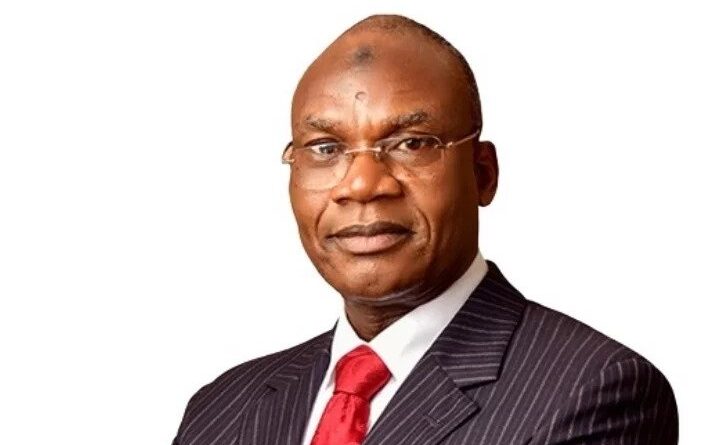FG evaluation portal: Nigerians give ministers of electricity, defence, agriculture, and education low marks
Nigerians have not been kind to the Federal Government’s Citizens’ Delivery Tracker Apps for the Ministers of Power, Defence, Education, and Solid Minerals.
Before the first evaluation exercise in January 2024, the Federal Government had appointed no less than 140 individuals to monitor and evaluate the performance of the federal ministries, departments, and agencies.
Starting on January 24, 2024, the authorities attended the third technical retreat for Delivery Desk Officers of Federal Ministries on the Implementation of Presidential Priorities and Ministerial Deliverables in Uyo, the capital of Akwa Ibom State.
A senior official closely collaborating with the Central Delivery Coordination Unit, led by Hadiza Bala-Usman, Special Adviser to the President on Policy Coordination, disclosed that the officers conducting the assessment were selected from 35 Federal Government ministries, departments, and agencies.
They are taking into account the reporting procedures, the main performance indicators, and the assessment methods, the official informed our correspondent.
The Presidency, meantime, announced a citizens’ feedback platform in April with the intention of creating a “strong feedback loop between citizens and government” on the eight sectors that the Bola Tinubu administration considers to be top priorities.
That month at the CDT Go-Live ceremony in Abuja, Bala-Usman disclosed that the application was created with President Tinubu’s decision to assess his ministers and heads of agencies using key performance metrics.
According to Bala-Usman, the eight top areas in which the app will evaluate the ministers’ performance are: enhancing national security for peace and prosperity, promoting agriculture to guarantee food security, and releasing energy and natural resources for sustainable development.
Others are to improve governance for efficient service delivery, accelerate diversification through industrialization, digitization, creative arts, manufacturing, and innovation; and concentrate on education, health, and social investment as fundamental development pillars.
Bala-Usman also went into great depth regarding the application and its anticipated deliverables in an October 2023 interview.
As she had stated, “We are going to deploy an application—a software—where citizens can report back on project-based deliverables that the Federal Government has committed to doing within the period of 2024.”
At the time, she said, “We sat with the Office of the Secretary to the Government of the Federation.” Effective effort has been done to specify the deliverables for every ministry.
‘Those deliverables cascade to government agencies. Sectoral deliverables, for example, in the health sector include every component of its ecosystem and value chain.
The pertinent ministries convert such outputs into important performance measures. Having your key performance indicators helps you to clearly define your deliverables for the four years of the administration.
Analysing the application’s feedback reports, however, revealed that some Nigerians gave each of the ministers—Adebayo Adelabu, Mohammed Badaru Abubakar, Prof. Tahir Mamman, and Mohammed Abubakar, the Minister of Agriculture and Rural Development—a single mark out of a possible five.
The electricity minister received one grade from no less than 176 respondents, or 69 percent, of the 253 respondents who assessed him; the defence minister received one mark from 34 respondents, or 43 percent of the 79 respondents.
Comparably, no less than 22 respondents—or 47 percent of 46—gave the education minister one grade, 32 out of 98 gave the agricultural minister one mark, and 19 gave him none at all. In their categories, the four ministers received just five marks apiece from 20, 7, 3, and 23 individuals.
On the application, however, the Ministers of Works, Dave Umahi; Minister of the Federal Capital Territory, Nyesom Wike; and Minister of Finance and Coordinating Minister for the Economy, Wale Edun, received average ratings.
Thirteen respondents gave the finance minister four marks, seventeen gave him three, fourteen gave him two, four gave him one, and eighteen gave him zero out of the 101 who assessed him.
Five responders out of 32 gave the FCT minister five marks, five gave him four, and two gave him three.
In a similar vein, 18 out of 52 respondents awarded the works minister five stars, six gave him four, five gave him three, and eleven gave him none.
Among other cabinet members evaluated as average in the application report were Dele Alake, the Minister of Solid Minerals; Adegboyega Oyetola, the Minister of Marine and Blue Economy; and Owan Enoh, the Minister of Sports Development.
Further ministers evaluated were Lateef Fagbemi, the Minister of Justice and Attorney General of the Federation; Mohammed Idris, the Minister of Information and National Orientation; and Nkeiruka Onyejeocha, the Minister of Labour and Employment.
Nine out of the 21 responders to one of the feedback surveys gave the Minister of Solid Minerals one point, and five others gave him five points apiece. Ten out of 27 respondents awarded the marine and blue economy minister five scores apiece, while the communication minister received one mark from seven out of eighteen respondents; the labour ministry received five marks from eight out of fifteen respondents.
As of the time of publishing this report, 774 respondents had taken part in the ministers’ ratings out of the 14 feedback reports that our correspondent had access to and examined.
The economics have not done their job well.




